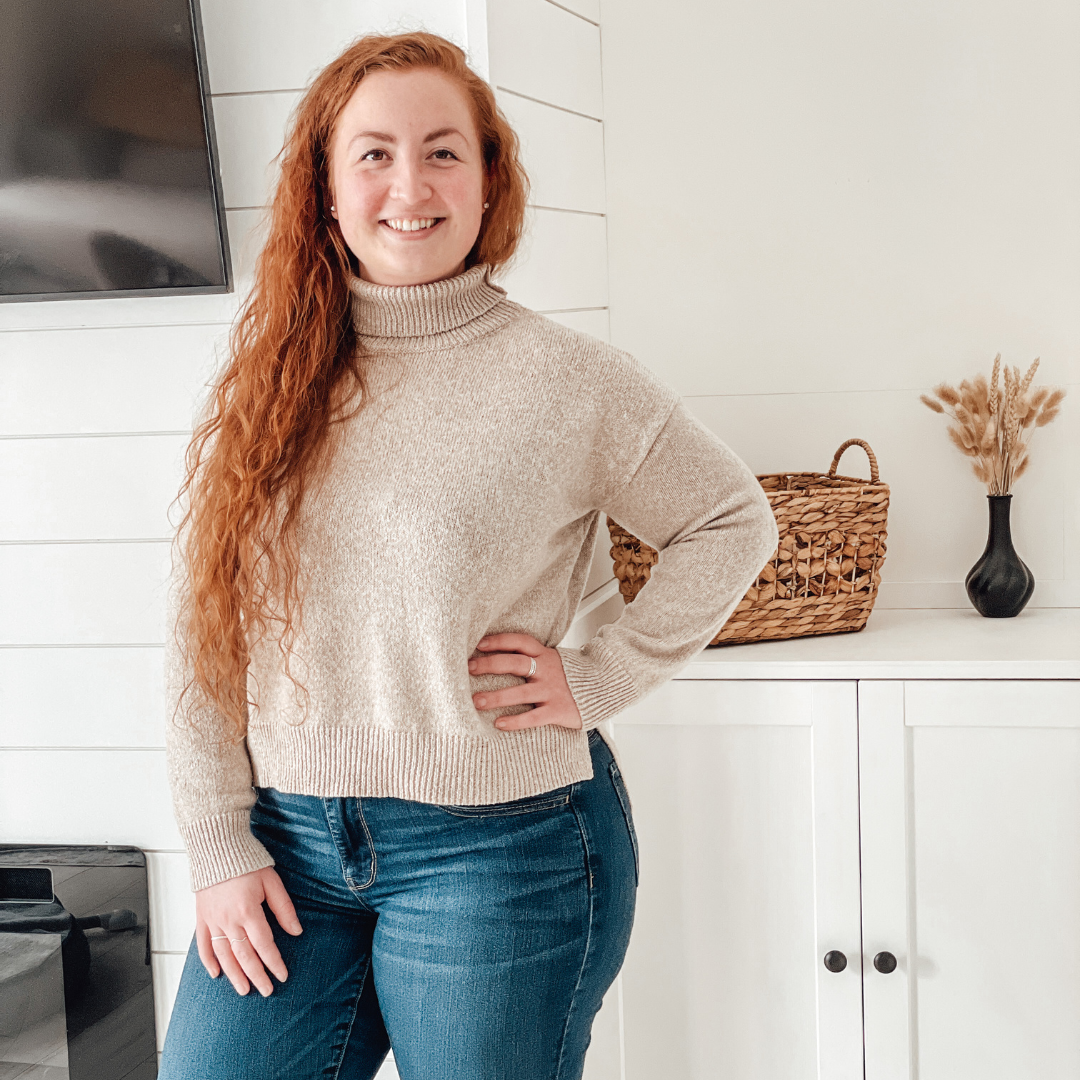Always Saying Yes? Here’s How That’s Killing Your Energy & Your Business
The Fawn Response: How People Pleasing Is Draining Your Energy and Hurting Your Business
If you're an intuitive, ambitious woman who's building a business, navigating burnout, and feeling emotionally overextended, this one’s for you.
As a female entrepreneur, service provider, or helper type professional, it’s likely you care deeply about the people you work with. But that same empathy can become a double-edged sword when your nervous system kicks into the fawn response, a survival mechanism rooted in people-pleasing and self sacrifice.
Let’s explore how this shows up, why it’s happening, and how it might be costing you your health, happiness, and business growth.
What Is the Fawn Response?
The fawn response is a nervous system survival strategy where we appease, please, or over give in order to avoid conflict, rejection, or perceived threat. It often sounds like:
-
“I don’t want to hurt their feelings.”
-
“It’s just easier to say yes.”
-
“I don’t want to create conflict or make them mad.”
At its core, the fawn response says: I’ll sacrifice myself to be accepted by others.
This response is deeply tied to our nervous system’s primal need for belonging. Historically, being accepted by the group was essential to our survival. Being alone (outcast, shunned, or rejected) meant danger. While society has evolved, our nervous systems haven’t caught up. That same instinctual drive still urges us to conform, avoid rocking the boat, and say yes when we really want to say no.
Who This Is For
This conversation is especially relevant for female entrepreneurs, healers, coaches, and business owners, but really, anyone who feels exhausted, overwhelmed, or resentful from constantly overextending themselves will see themselves in this.
Do you…
-
Struggle to set or uphold boundaries?
-
Feel drained by your clients or your schedule?
-
Say yes out of guilt, fear, or habit?
-
Feel frustrated or bitter, but unsure why?
Then keep reading. You might be caught in the fawn response, and it’s costing you more than you realize.
Recognizing the Fawn in Real Life
If you’re not sure whether this shows up for you, here are some signs you might be stuck in the fawn response:
-
Over-apologizing, even when you’re not at fault.
-
Saying yes to clients, collaborations, or tasks that don’t align with your values or capacity.
-
Prioritizing other people’s comfort over your own wellbeing.
-
Avoiding boundaries or conflict because it feels too overwhelming or unsafe.
While we can experience all four nervous system responses (fight, flight, freeze, and fawn) most people tend to default to one more than others, especially during certain seasons of life. For many women, fawning becomes a conditioned, unconscious pattern, reinforced by societal expectations to be kind, agreeable, and self sacrificing.
As women, we’ve been taught that saying no is selfish, setting boundaries is rude, and taking up space makes us "difficult." Even in roles like motherhood, caregiving, or leadership, we’re encouraged to do more and give more, often at our own expense.
But what if people-pleasing isn’t kindness, it’s fear?
When Fawning Shows Up in Business
In your personal life, the fawn response might look like saying yes to family gatherings when you're exhausted or avoiding tough conversations with a partner. But in business, fawning can be even more insidious, and damaging.
Here’s how it can show up in your work:
-
Accepting clients that drain you out of guilt or obligation.
-
Saying yes to late night meetings or appointments when your body is begging for rest.
-
Avoiding necessary boundaries with team members or collaborators to “keep the peace.”
-
Creating content or offerings that aren’t aligned, just because you think it’s what others want.
One common example? Feeling obligated to stay late at the clinic even though your body is clearly saying no. You tell yourself, I’m not doing anything anyway, or no one else is available, so I guess I should…
But afterward, you’re resentful, bitter, and energetically depleted. And the truth is... you knew better. Your body told you not to. But the guilt won.
The Consequences of Overextending
Fawning isn’t just a mindset, it’s a nervous system pattern that leads to resentment, burnout, and disconnection from yourself.
When you constantly overextend and override your needs, a few things happen:
-
You expect something in return. You may think, I’m doing so much for everyone... why won’t anyone help me?This creates frustration, because your giving wasn’t from overflow; it was from depletion.
-
You hit a breaking point. You keep the peace for so long that eventually you explode, either through an emotional outburst or complete withdrawal.
-
You lose trust with yourself. Every time you ignore your gut instinct, you reinforce the belief that other people’s needs matter more than yours.
If this sounds familiar, you’re not alone, and you’re not broken. This is a nervous system pattern that can be healed.
The Hidden Cost of Saying Yes When You Mean No
Often, the moments we override our boundaries seem small, like agreeing to work late for a client who “really needs” an appointment, or saying yes to a project that doesn't quite feel aligned. But those decisions add up.
You might tell yourself it’s just one evening. Or just one client. But if that decision leaves you feeling bitter, drained, or resentful, it's a clear sign your yes was actually a no in disguise.
And more often than not, those clients? They don’t come back. The energy doesn't align. The session feels off. You over gave, and they didn’t respect it, because you didn’t respect your own boundary.
We’ve all experienced that post-cancellation relief: when plans fall through and you're secretly thrilled. That’s your nervous system whispering: “You didn’t want to go in the first place.” Listen to it.
Overdelivering and Undervaluing Yourself
Another common fawning pattern is overdelivering without charging accordingly.
For example, you book a client for a one-hour session and end up giving 90 minutes of your time. Or as a coach, you make yourself available to clients 24/7, replying to every late night message or request, even when you're exhausted.
You tell yourself it’s part of the job. That this is what being "supportive" looks like.
But here’s the truth: your clients get more from you when you’re recharged, energized, and in integrity with yourself.
If you’re avoiding raising your prices or resisting creating structured boundaries in your offerings, chances are you’re running your business from a fawn state. That fear... what if they don’t come back? what if they’re mad?, is your nervous system trying to protect you. But in doing so, it’s holding you (and your business) back.
The Physical and Emotional Toll of People-Pleasing
Fawning doesn’t just hurt your time and energy, it takes a real toll on your physical and emotional wellbeing, too.
When you continually ignore your inner “no,” you may begin to experience:
-
Resentment and frustration after interactions
-
Anxiety or gut issues
-
Emotional burnout and fatigue
-
Feeling unseen, underpaid, or taken advantage of
-
Financial struggles, because you aren’t charging your worth
-
A disconnection from your creativity and purpose
Eventually, you may even feel like quitting. You lose the spark, feel confused about your direction, or fantasize about a completely different job just to escape the pressure.
These are all signs that your capacity is maxed out and your business is out of alignment, not because you’re failing, but because you’re fawning.
What Drives the Fawn Response?
To truly shift out of this pattern, it helps to understand why it’s there in the first place. Here are some of the most common root causes:
1. Childhood Conditioning
Many of us were raised to be “good girls”, praised for being agreeable, quiet, and helpful. If you grew up in a home where conflict felt unsafe (e.g. with a parent who was reactive, emotionally unpredictable, or quick to anger), you may have learned to keep the peace at all costs.
Being the helper, the fixer, or the caretaker often became your identity, a survival role, not a conscious choice.
2. Beliefs About Love and Safety
Another layer of fawning is the internal belief that “if I make others happy, I’ll be loved and safe.” This might show up as over giving, over-delivering, or being hyper available... all in hopes of being valued, needed, or kept close.
But here's the hard truth: when you consistently overextend yourself, people start to expect it. And whether they mean to or not, they begin to take advantage of your energy. Not necessarily out of malice, they’ve just never been given a reason not to.
When you begin setting boundaries, one of two things happens:
-
They leave and you feel relief.
-
They stay and respect you even more.
3. Nervous System Wiring
At the core, fawning is a nervous system response. Your body has learned that being assertive is unsafe, that saying no might lead to rejection, loss of love, or being cast out of the group. So, it avoids conflict at all costs.
You may also simply not feel emotionally safe setting boundaries, because you've never experienced what that looks or feels like. That doesn't make you broken; it makes you human.
How to Start Healing the Fawn Response
You don’t have to overhaul your entire life overnight. Healing this pattern begins with small, consistent shifts, ones that help your body feel safe enough to speak up, say no, and hold your own needs as sacred.
Here’s how you can begin:
1. Become Aware
Start by simply noticing your responses.
-
When do you say yes out of fear, guilt, or obligation?
-
Where do you ignore your intuition?
-
What interactions leave you feeling drained or resentful?
Even if the awareness comes after the fact, that’s okay. You’re building a new level of consciousness that will eventually allow you to make different choices in the moment.
2. Practice Nervous System Regulation
Regulating your nervous system makes it easier to speak your truth.
Try simple tools like:
-
Grounding or orienting in your environment
-
Gentle breathwork
-
Movement or stretching
-
Journaling your feelings
-
Taking breaks to reset
The calmer and more resourced your body feels, the easier it becomes to hold boundaries, even in difficult conversations or high-pressure situations.
3. Start With Micro-Boundaries
Don't try to set massive, life-altering boundaries right away. Instead, start small:
-
Say “no thank you” to the second coffee or dessert.
-
Tell someone, “Let me get back to you” instead of giving a rushed yes.
-
Block off your evenings after 5 PM and hold that line, even if someone asks nicely.
These micro-boundaries build confidence. They signal to your body that it’s safe to take up space, have preferences, and protect your peace.
4. Reconnect With What You Really Want
The fawn response keeps you focused on what others want. Healing means turning your attention inward.
Ask yourself:
-
What do I want my day to feel like?
-
How do I want to work with my clients?
-
What kinds of boundaries would support my energy?
-
How do I want to be paid, treated, and respected?
Get specific. The clearer you are on your desires, the easier it becomes to notice where you're settling, self-sacrificing, or people-pleasing, and where you can begin to realign.
Becoming the Empowered Leader Your Business Needs
At the core of healing the fawn response is identity work. As entrepreneurs, especially women, many of us are conditioned to be the nice girl... the helper, the fixer, the one who avoids rocking the boat. But to grow your business and protect your well-being, you must shift into the identity of an empowered leader... someone who is bold, self-honoring, and boundary-conscious.
That doesn’t mean becoming rude or inconsiderate. You can absolutely be kind, compassionate, and supportive while still saying no. You can advocate for your needs, show up fully for your clients, and run a successful business without sacrificing your health, your time, or your energy.
This identity shift isn’t a quick fix. It’s a process of rewiring deeply ingrained beliefs. But the moment you start becoming conscious of your patterns (especially your fear of saying no) you begin changing them.
Ask Yourself: What Are You Afraid Will Happen If You Say No?
This is a powerful journal prompt and reflection:
What am I afraid of if I say no?
Is it fear of disappointing someone? Being seen as selfish or ungrateful? Losing an opportunity? The fawn response often leads us to say yes to avoid the emotional discomfort of guilt, confrontation, or rejection. But in doing so, we often abandon our own needs, time, and energy.
Flip the script:
Where are you saying yes to avoid discomfort, instead of honoring what you truly want or need?
This is where change begins, not in one big leap, but in small, intentional moments of awareness and choice. This is how you begin to rewrite the pattern.
A Gentle Reminder: Healing Is a Journey
The more you notice these fawn tendencies in real-time, the easier it becomes to choose differently. At first, it may feel confusing or even scary. But over time, you’ll start to connect the dots. You’ll see how certain habits and business challenges stem from nervous system responses, not personal flaws.
With this awareness, you can begin to create a business and a life that feel more aligned, grounded, and sustainable.
Want Support? Join ElevateHER
If this resonates with you and you’re ready to dive deeper, I offer support through my ElevateHER coaching program. It’s a 12-week container for female entrepreneurs and service providers who want to release old patterns, regulate their nervous system, and build aligned businesses from the inside out.
While it's a group program, there are personalized 1:1 touchpoints throughout to ensure you're fully supported.
Let’s Keep the Conversation Going
If you found this blog helpful, please share it with another entrepreneur who might be stuck in a similar loop and not realize it’s rooted in nervous system dysregulation. Healing is possible, and the more we understand ourselves, the more we empower each other.
Make sure to check out the other blog posts in this series where I break down the other nervous system responses:
Fight, Flight, and Freeze.
You’re not alone, and you can get out of your own way and feel like yourself again.






